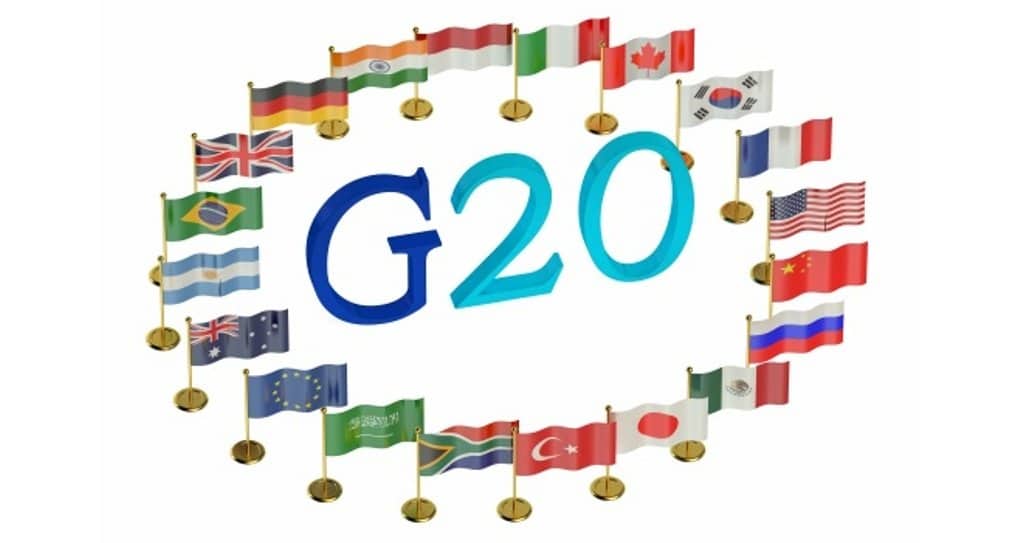Digital Currency Gains Traction Globally
Digital currency is no longer just a speculative asset or niche technology. As its influence grows, it is becoming a critical component of the global financial system. In a significant move, G20 member nations are exploring ways to integrate digital payments into their economic frameworks.
According to a report by Kyodo News, representatives from the 19 member countries and the European Union are set to discuss digital payment systems. This landmark decision highlights the rapid adoption of digital currencies and their potential to transform global finance.
G20’s Path to Digital Currency Integration
1. October Target for Policy Discussions
- Officials aim to finalize discussions at the G20 Finance Ministerial and Deputies Meetings in Washington, D.C., in October.
- These discussions will set the stage for broader agreements at the next G20 Summit in Riyadh, Saudi Arabia, in November.
2. Addressing Global Needs
The integration of digital currencies could address global challenges like financial inclusion, cross-border payment inefficiencies, and economic resilience.
Motivations Behind G20’s Digital Currency Push
1. China’s Digital Yuan
China’s rapid progress in developing its central bank digital currency (CBDC) has spurred action among G20 members.
- The People’s Bank of China (PBOC) announced in June that it had completed the backend architecture for the digital yuan.
- This development positions China as a leader in the global CBDC race, prompting other nations to accelerate their efforts.
2. Facebook’s Libra Project
The anticipated launch of Facebook’s Libra (now Diem) has added pressure on governments to explore digital payment systems:
- Libra’s potential to reach billions through Facebook’s global user base could disrupt traditional financial systems.
- Policymakers view the project as both an opportunity and a challenge, underscoring the need for coordinated regulatory frameworks.
Implications for Digital Payments and CBDCs
1. Strengthening Financial Systems
- Digital currencies offer a secure, efficient alternative to traditional payment systems.
- They can reduce costs, increase transparency, and enhance accessibility for underbanked populations.
2. Promoting Economic Collaboration
- Coordinating digital payment policies across G20 nations can foster economic cooperation and streamline cross-border trade.
3. Addressing Security and Privacy Concerns
- Policymakers must balance innovation with safeguards against fraud, money laundering, and privacy violations.
How Digital Currencies Are Reshaping the Financial Landscape
1. Central Bank Digital Currencies (CBDCs)
- CBDCs are government-backed digital currencies designed to complement fiat money.
- They aim to enhance monetary policy effectiveness and address inefficiencies in the current financial system.
2. Private Digital Currencies
- Projects like Facebook’s Libra/Diem demonstrate how private companies can contribute to financial innovation.
- However, these initiatives raise questions about regulatory oversight and the role of central banks.
3. Blockchain Technology’s Role
- Blockchain, the technology underpinning most digital currencies, provides secure, transparent transaction records.
- Its adoption in digital payments can improve cross-border transfers and reduce transaction times.
Global Reactions to Digital Currency Progress
1. Japan’s Leadership in Policy Advocacy
Japanese media reports suggest that G20 officials are prioritizing digital payment integration in response to technological advancements by nations like China.
- Japan has been vocal about the need for global digital currency policies, emphasizing interoperability and regulatory consistency.
2. Europe’s CBDC Developments
The European Central Bank (ECB) is actively exploring a digital euro to ensure financial sovereignty and competitiveness.
3. U.S. Stance on Digital Payments
While the U.S. Federal Reserve remains cautious, discussions about a digital dollar are gaining momentum, particularly as other nations advance their CBDC efforts.
Challenges in Adopting Digital Payments
1. Regulatory Hurdles
- Aligning policies across diverse economies with varying financial regulations poses a significant challenge.
- Addressing issues like tax compliance, anti-money laundering (AML), and data protection requires international collaboration.
2. Technological Barriers
- Developing robust infrastructure to support digital payment systems is a complex and resource-intensive process.
- Ensuring scalability, security, and accessibility will be critical for success.
3. Public Trust and Adoption
- Building confidence among citizens and businesses is essential for the widespread adoption of digital currencies.
- Education campaigns and transparent policies will play a vital role in fostering trust.
Opportunities for G20 Nations
1. Financial Inclusion
Digital currencies can bridge the gap for the unbanked population, providing access to financial services in remote regions.
2. Streamlined Trade
Digital payments can simplify cross-border transactions, reducing costs and improving efficiency for international trade.
3. Economic Resilience
CBDCs offer a stable, government-backed alternative to volatile private cryptocurrencies, strengthening national economies.
The Road Ahead for Digital Currency Integration
1. Framework Development
- The G20’s efforts in October will focus on creating a blueprint for digital currency integration.
- Policies will likely address interoperability, regulatory compliance, and technological infrastructure.
2. Collaborative Efforts
- Collaboration among nations is essential to ensure seamless cross-border payments and prevent regulatory arbitrage.
3. Monitoring Technological Advancements
- Keeping pace with innovations like China’s digital yuan and private initiatives like Libra will be crucial for maintaining global competitiveness.
Conclusion: G20’s Role in Shaping the Future of Digital Finance
The G20’s focus on digital payments reflects the growing importance of digital currencies in the global economy. As nations like China advance their CBDC projects and private players like Facebook push for innovation, the need for coordinated international policies has never been greater.
By prioritizing digital currency integration, the G20 is laying the foundation for a more inclusive, efficient, and secure financial system. This move could redefine global finance, fostering economic growth and collaboration among member nations.
For more insights into the future of digital currencies and global financial policies, explore our article on latest news, where we analyze the trends shaping the digital economy.
Disclaimer: The information provided is not trading advice, Bitcoinworld.co.in holds no liability for any investments made based on the information provided on this page. We strongly recommend independent research and/or consultation with a qualified professional before making any investment decisions.

